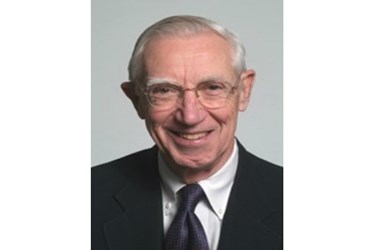Lucian Leape Institute At The National Patient Safety Foundation Endorses OSHA Programs On Health Care Worker Safety

Dr. Lucian Leape, adjunct professor at the Harvard School of Public Health and Chairman of the Lucian Leape Institute at the National Patient Safety Foundation, joins Dr. David Michaels, Assistant Secretary of Labor for Occupational Safety and Health, at a press briefing at 2:00 pm Eastern Time in Washington, DC.
Boston, MA (PRWEB) - The Occupational Safety and Health Administration today releases a comprehensive package of tools for hospitals to use in assessing—and improving—the safety of their workforce. The release of the materials is to be announced by Dr. David Michaels, Assistant Secretary of Labor for Occupational Safety and Health, at a press briefing at 2:00 pm Eastern Time in Washington, DC.
In joining Dr. Michaels at the briefing, Dr. Lucian Leape, adjunct professor at the Harvard School of Public Health and Chairman of the Lucian Leape Institute at the National Patient Safety Foundation, today issued the following statement:
"Many of us in medicine have long recognized that hospitals can be dangerous places—not only for patients who are at risk of experiencing a medical error or an adverse event, but also for nurses, physicians, and other health care workers. As OSHA notes, health care workers suffer a variety of physical injuries—such as back injuries, assaults, needle stick, and exposure to blood-borne pathogens—at rates much higher than workers in other industries. They also suffer psychological injuries—with disrespectful treatment and non-value-added work taking a toll on those who care for patients. Most of these injuries are preventable.
"My colleagues and I at the Lucian Leape Institute at NPSF have been proud to partner with OSHA in bringing awareness of this issue into the open. Today, Dr. Michaels and his team take those efforts a step further by creating and disseminating tools that put actionable change in the grasp of health leaders. Not only are we obliged to take all reasonable action to reduce injuries to our hard-working and dedicated workers, doing so will pay for itself, as fewer injuries will result in fewer lost work days, lower worker compensation payments, and a happier, healthier workforce. The Lucian Leape Institute at the National Patient Safety Foundation is proud to stand by OSHA in helping to promulgate these important materials."
In March 2013, the Lucian Leape Institute published Through the Eyes of the Workforce: Creating Joy, Meaning, and Safer Health Care. The report surveys the state of the health care workplace, highlights vulnerabilities common in health care organizations, discusses the costs of inaction, and outlines what a healthy and safe workplace would look like. The report concludes with seven recommendations for actions that organizations need to pursue to effect real change. Dr. Michaels was a member of the Lucian Leape Institute Expert Roundtable on Joy, Meaning, and Workforce Safety, the proceedings of which contributed to the report.
About The National Patient Safety Foundation
NPSF has been pursuing one mission since its founding in 1997 – to improve the safety of care provided to patients. As a central voice for patient safety, NPSF is committed to a collaborative, multi-stakeholder approach in all that it does. NPSF is an independent, not-for-profit 501(c)(3) organization. To learn more about the work of the National Patient Safety Foundation visit http://www.npsf.org.
About The Lucian Leape Institute at NPSF
The Lucian Leape Institute at NPSF, established in 2007, is charged with defining strategic paths and calls to action for the field of patient safety, offering vision and context for the many efforts under way within health care, and providing the leverage necessary for system-level change. Its members comprise national thought leaders with a common interest in patient safety whose expertise and influence are brought to bear as the Institute calls for the innovation necessary to expedite the work and create significant, sustainable improvements in culture, process, and outcomes critical to safer health care. For more information, visit http://www.osha.gov/dsg/hospitals
Source: PRWeb
View original release here: http://www.prweb.com/releases/2014/01/prweb11488104.htm
